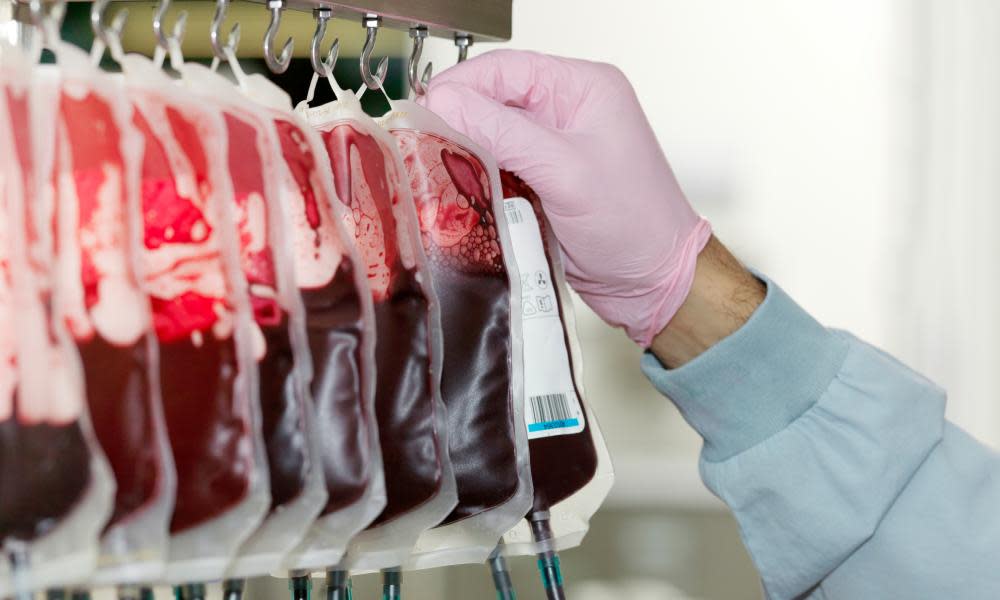Pathologists like me save lives daily. Yet so few people know what we do

Anyone who watched BBC2’s fly-on-the-wall documentary Hospital might have heard of “the lab”. I am one of many who work there – and as a pathologist I often feel, as many of my lab colleagues do, like a forgotten or unknown entity.
There are nearly 20 disciplines of pathology – and that number is growing – and 70% of all diagnoses made in the NHS involve pathology and biomedical science. The Royal College of Pathologists’ annual report [pdf] tells us that more than a billion tests are carried out annually – and NHS England says the number of pathology tests [pdf] equates to 14 for each person in England and Wales.
Sound impressive? Then why are we seen as back office staff by other professionals, with nobody fully understanding what we do? People often assume I deal with dead bodies when I tell them I work in a pathology lab. Postmortem pathologists account for about 1% of the pathology workforce.
My colleagues in the lab issue blood products to the scene of a car accident, and carry out screening tests to make sure a newborn baby doesn’t have a condition that would otherwise not get diagnosed until it is too late. They receive tissue from colons or breasts removed during surgery to see if a surgeon has fully got rid of a tumour; they assist in postmortems so that they might answer some of the questions a family may have – and help to ease their pain.
Pathologists and biomedical scientists also see what antibiotic would work best for you to help tackle antimicrobial resistance; they investigate hereditary disease so that any future generations might avoid the same illness. This is just a small insight into what we provide as a service.
Just because we’re not patient-facing, don’t be under any illusion that we care about them any less. On a number of occasions I’ve left work in tears, trying to get it all out of my system before going home to my family. Sometimes I feel it’s unfair that we know a patient’s diagnosis before they do, because we either see the results from the analyser or produce reports and these get discussed by healthcare professionals in order to approach the patient with treatment or management options.
I know that there’s no way of fixing this. However, it still doesn’t feel just or right. Many of us in the NHS spend much of our day feeling guilty: guilty that we can’t do more, guilty that we’re healthy and the patients we care for aren’t – and guilty because in order to care for patients we miss out on our own family time.
However, we still spend more of our time helping to deliver good news rather than bad. I remember a case from when I was on rotation in a blood bank many years ago. Doctors and porters were constantly coming up to the department for blood products, because as soon as any blood went into the patient being treated, it was just as quickly coming back out because their injuries were so severe.
The patient made what can only be described as a miraculous recovery. The blood bank and Welsh Blood Service played a huge part – yet that patient, and their family, will probably be unaware of this.
Another great part of my job is when we get a request for an urgent result or report and we work hard together to deliver the results – or when we find out which specific cancer someone has, so that patient can start their treatment immediately. It’s great being part of something that can make such a big difference to people’s lives.
I’m not demoralised and fed up – quite the opposite, in fact. I just want to highlight the variety of work we do and how it impacts on patient care. We are pathologists, biomedical scientists, associate practitioners, medical lab assistants and admin and clerical staff. We play a vital role in not just assisting in diagnosis, but also advising on the treatment and management of patients.
Pathology work goes on day and night, every day of the year. I feel so fortunate to have found a career I have fallen in love with – even if bits of it are gory.
If you would like to contribute to our Blood, sweat and tears series about experiences in healthcare, read our guidelines and get in touch by emailing sarah.johnson@theguardian.com
Follow us on Twitter (@GdnHealthcare) to keep up with the latest healthcare news and views
If you’re looking for a healthcare job or need to recruit staff, visit Guardian Jobs

 Yahoo News
Yahoo News 
